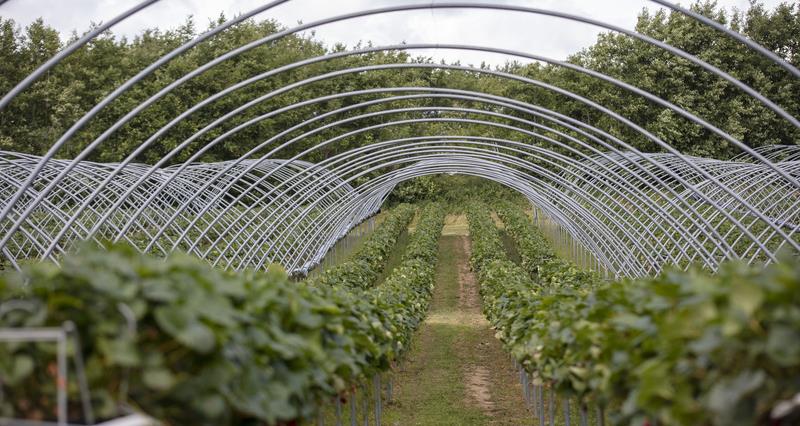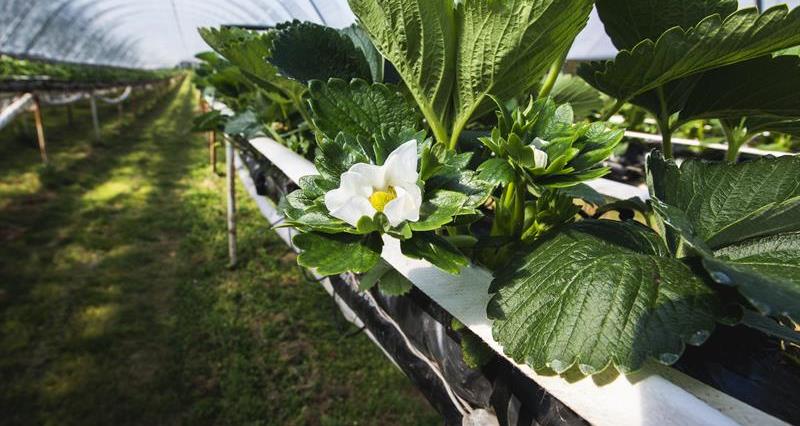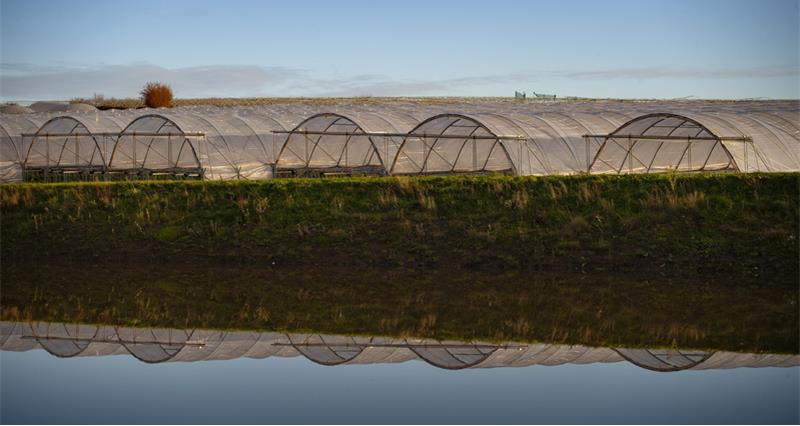The report, published in November last year, said that UK horticulture was at a crossroads, and had been ‘under-prioritised and unappreciated by policymakers’, leaving holes in the UK’s food security.
Disappointingly, many of the committee’s recommendations have not been carried forwards.
This is despite the horticulture sector being earmarked by the government at its Farm to Fork summit as an area for growth, and the promise of a Horticulture Strategy within its own Food Strategy, published in 2022.
‘Supply chain is fragile’
NFU Horticulture & Potatoes Board chair Martin Emmett said the government’s response had “missed the opportunity to grow the British horticulture sector”.
There was no reference to growing UK horticulture within the response, but instead a ‘commitment’ to broadly maintain the UK’s food self-sufficiency at the current level of 60%.
Martin warned that the industry is facing its third year of unprecedented and highly volatile costs of production, referencing the recently published Promar report, which found that growers have seen profits ‘all but wiped out for the last 2 years’, with profit margins unlikely to stabilise soon.
“The risk and lack of reward is simply too high,” Martin added.
“The British horticulture sector is worth £5 billion to the UK economy, yet despite its own ambitions, much of the government’s response seems to have missed the opportunity to grow the British horticulture sector.”
NFU Horticulture & Potatoes Board chair Martin Emmett
Fruit and vegetable shortages combined with ongoing global instability has left the supply chain “fragile” Martin said.
“We shouldn’t rely on imports to feed the nation. Instead we need government to match its own ambitions for the sector, alongside supporting our ornamental plant and flower businesses to achieve their environmental and biosecurity objectives.
“As a start, we need to give our British growers certainty by having a consistent plan for seasonal labour, including a five-year rolling Seasonal Workers Scheme, as well as sustainable returns and longer-term contracts with their key customers, the retailers and processors.”
Key points at a glance:
- Responding to the report recommendation to publish the findings from the review into fairness into the horticulture supply chain as soon as possible, and to include ornamentals within its scope, the government said ‘the decision to exclude ornamentals does not preclude Defra from consulting on the sector at a later point’.
- On seasonal workers, the government has said it will publish its response to the Independent Review into Labour Shortages in the Food Supply Chain in early 2024 and that it is ‘carefully considering’ the Migration Advisory Committee’s latest review of the Shortage Occupation list.
- MPs recommended horticulture to be recognised as an energy-intensive industry and added to the list of sectors eligible for the ETII (Energy and Trade Intensive Industries) scheme to which the government said it would explore how horticulture can be better represented through the UK Standard Industrial Classification codes, used to assess sector eligibility for energy support schemes.
- The report also called for clarity on the risk model proposed as part of post-Brexit import controls under the BTOM (Border Target Operating Model). The government said it ‘will provide traders and trading partners with at least three months’ notice of any change to risk categorisation so they can adapt their processes as needed’.



